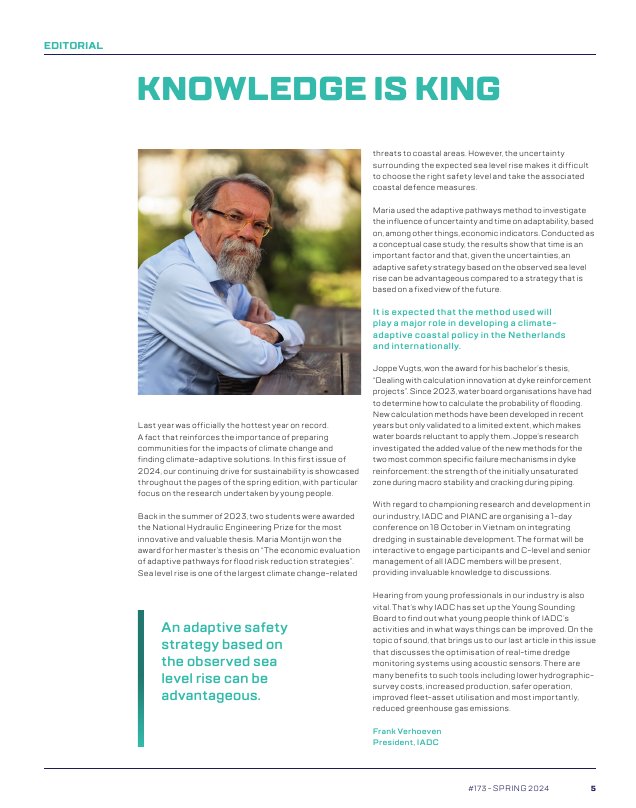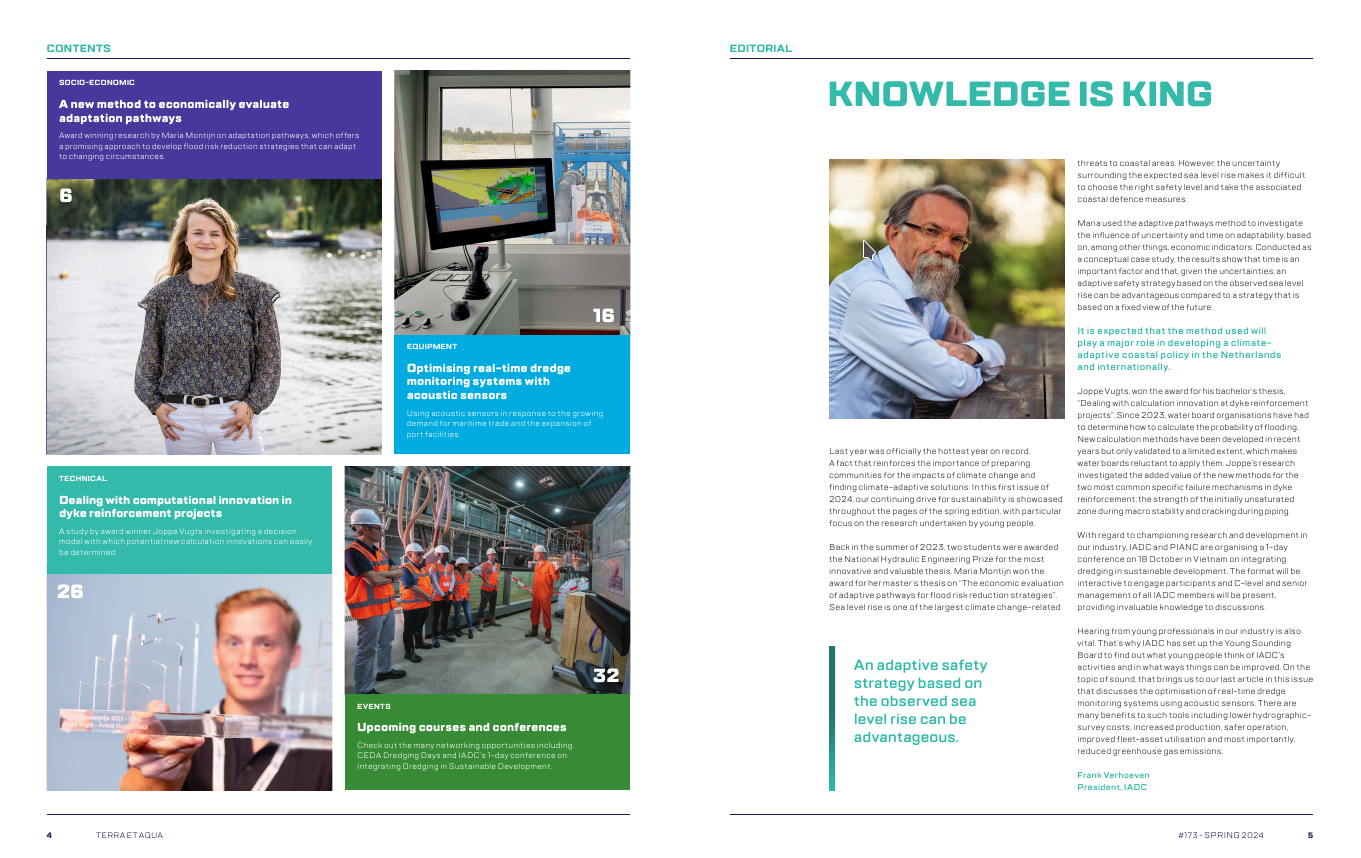Last year was officially the hottest year on record. A fact that reinforces the importance of preparing communities for the impacts of climate change and finding climate-adaptive solutions. In this first issue of 2024, our continuing drive for sustainability is showcased throughout the pages of the spring edition, with particular focus on the research undertaken by young people.
Back in the summer of 2023, two students were awarded the National Hydraulic Engineering Prize for the most innovative and valuable thesis. Maria Montijn won the award for her master’s thesis on “The economic evaluation of adaptive pathways for flood risk reduction strategies”. Sea level rise is one of the largest climate change-related threats to coastal areas. However, the uncertainty surrounding the expected sea level rise makes it difficult to choose the right safety level and take the associated coastal defence measures.
Maria used the adaptive pathways method to investigate the influence of uncertainty and time on adaptability, based on, among other things, economic indicators. Conducted as a conceptual case study, the results show that time is an important factor and that, given the uncertainties, an adaptive safety strategy based on the observed sea level rise can be advantageous compared to a strategy that is based on a fixed view of the future.
It is expected that the method used will play a major role in developing a climate-adaptive coastal policy in the Netherlands and internationally.
Joppe Vugts, won the award for his bachelor’s thesis, “Dealing with calculation innovation at dyke reinforcement projects”. Since 2023, water board organisations have had to determine how to calculate the probability of flooding. New calculation methods have been developed in recent years but only validated to a limited extent, which makes water boards reluctant to apply them. Joppe’s research investigated the added value of the new methods for the two most common specific failure mechanisms in dyke reinforcement: the strength of the initially unsaturated zone during macro stability and cracking during piping.
With regard to championing research and development in our industry, IADC and PIANC are organising a 1-day conference on 18 October in Vietnam on integrating dredging in sustainable development. The format will be interactive to engage participants and C-level and senior management of all IADC members will be present, providing invaluable knowledge to discussions.
Hearing from young professionals in our industry is also vital. That’s why IADC has set up the Young Sounding Board to find out what young people think of IADC’s activities and in what ways things can be improved. On the topic of sound, that brings us to our last article in this issue that discusses the optimisation of real-time dredge monitoring systems using acoustic sensors. There are many benefits to such tools including lower hydrographic- survey costs, increased production, safer operation, improved fleet-asset utilisation and most importantly, reduced greenhouse gas emissions.






